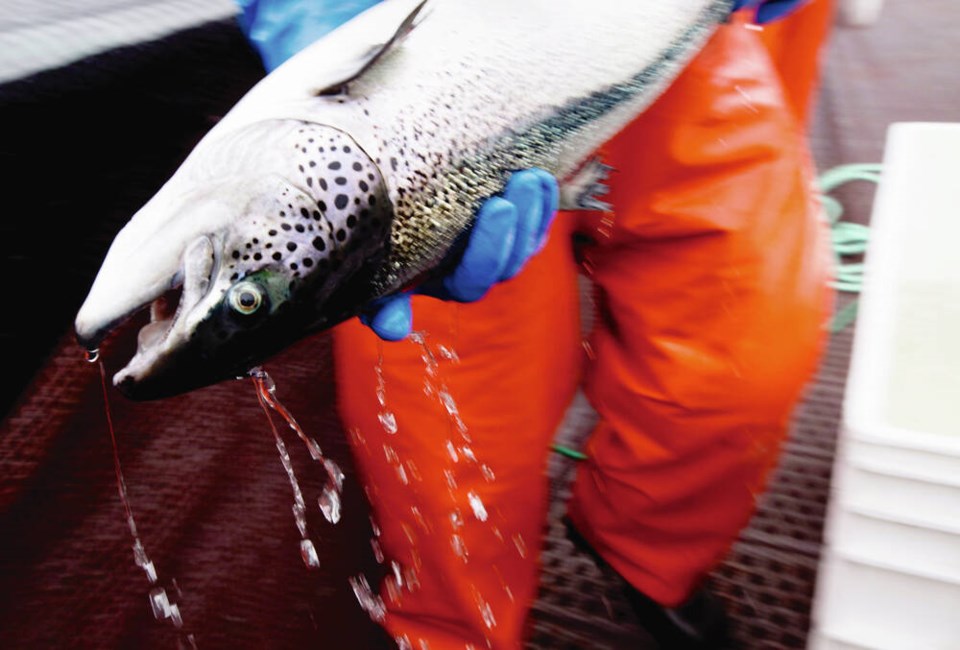The B.C. Salmon Farmers Association is citing a new report on sea lice in its latest volley against open-net-pen opponents, as the federal deadline approaches to close all Discovery Islands fish farms by the end of June.
It says data showed that parasitic sea lice levels in the Discovery Islands were low both prior to and after decreased production of salmon farming in the region since the federal fisheries minister announced in December that all Discovery Island farms must be free of fish by June 30, 2022.
“Five years of sea lice monitoring has demonstrated that sea lice levels have been low with most out-migrating salmon not infected by sea lice,” Brian Kingzett, association science and policy director, said in a statement Thursday.
Biologist and fish-farm critic Alexandra Morton has a different take, saying her own research in spring 2020 and again in spring 2021 showed that sea lice numbers had declined by 94 per cent. The Discovery Islands are east of Campbell River between Vancouver Island and the mainland.
After two decades of research, Morton remains convinced that fish farms should be located in land-based pens, not in the marine environment.
Sea lice are naturally occurring parasites that attach themselves to salmon and can cause fish to sicken and die. Critics believe that high numbers of farmed salmon result in spikes in lice populations that endanger wild salmon. Small young salmon are at risk because they swim by the farms on their way to the ocean, Morton said.
The issue came to a head in 2017-2018 when for 280 days, opponents led by area First Nations occupied area farms, demanding that they leave. “That’s when everything started to change,” said Morton, who took part in the protest.
After then-federal Fisheries Minister Bernadette Jordan announced the June deadline, fish-farm companies challenged the decision in federal court and are waiting for a decision.
In the meantime, companies have been removing equipment from the Discovery Islands, where there were once close to 20 active farms. Salmon Farmers Association executive director John Paul Fraser could not immediately say how many farms remain, but said numbers have been “dramatically curtailed.”
The association predicts that once all Discovery Islands farms are closed, nearly 1,500 jobs will be lost, along with 24 per cent of B.C. salmon-farming production.
Some on the northern part of Vancouver Island feel as though the industry has been demonized, Fraser said.
Job losses have an impact on people’s “kids, their Christmas gifts, their mortgages, their care for Mom. It’s so amazingly stressful,” he said.
The industry faces uncertainty, with about 70 farm licences elsewhere on the coast up for re-issuance next summer, Fraser said.
cjwilson@timescolonist.com



